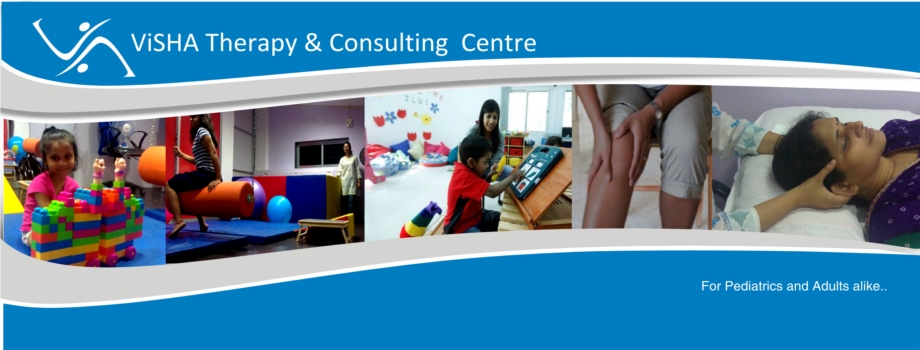For those of you who are new to all of this, you might be wondering... What IS Occupational Therapy? Many people have heard about occupational therapy, "OT" as we like to call it, but often don't fully understand.
Our profession is somewhat complex, but I will do my best to define occupational therapy and help you understand it.
What Is Occupational Therapy?...Technically, it is defined as
"The therapeutic use of work, self-care, and play activities to increase development and prevent disability. It may include adaptation of task or environment to achieve maximum independence and to enhance the quality of life."
"Occupation" means being occupied or engaged in a task at a given point of time.
A person or a child may be engaged in following occupations:
1. Self care: eating, dressing, grooming, bathing, toilet activities.
2. Work/Productivity:
Productive work as business/job for an adult,
School / learning / play for children
Housework for housewives.
3. Leisure / Play: engaging in occupations which give joy and pleasure like watching tv, listening to music, hobbies, socialising, travelling, reading etc.
4. Sleep.
Thus, our entire day comprises of sequence of occupations. Even a simple thing like watching tv or sleeping is termed occupation as per occupational therapists.
It is when proper time is given to all the above mentioned occupations that a person is said to be
"occupation Ally BALANCED" OR "HEALTHY AND FIT"
"Therapy" means intervention or getting the optimal functioning of an individual with or without assistive devices
"Occupational Therapy" comes into picture when at any point of time due to any physical, psychological, learning difficulty a person or a child is not able to perform or has a difficulty in performing any of the Self care, work, leisure or sleep occupational areas.
An occupational therapist will evaluate these performance areas of individuals and it is their duty to get the individual to perform as effeciently and as independently as possible.
For eg: When children have autism or dyslexia or any other physical difficulty they find it difficult to perform optimally in school or in play or in socializing. An occupational therapist evaluates the child and based on the evaluation brings them to their optimal level of functioning in school, at home and other places.
Similarly, when there is a break from routine for adults due to fracture, paralysis, pain, arthritis etc where there is a difficulty in performing their daily tasks efficiently, it is duty of an occupational
therapist to bring them back to their occupations as successfully and as independently as possible.
Our profession is somewhat complex, but I will do my best to define occupational therapy and help you understand it.
What Is Occupational Therapy?...Technically, it is defined as
"The therapeutic use of work, self-care, and play activities to increase development and prevent disability. It may include adaptation of task or environment to achieve maximum independence and to enhance the quality of life."
"Occupation" means being occupied or engaged in a task at a given point of time.
A person or a child may be engaged in following occupations:
1. Self care: eating, dressing, grooming, bathing, toilet activities.
2. Work/Productivity:
Productive work as business/job for an adult,
School / learning / play for children
Housework for housewives.
3. Leisure / Play: engaging in occupations which give joy and pleasure like watching tv, listening to music, hobbies, socialising, travelling, reading etc.
4. Sleep.
Thus, our entire day comprises of sequence of occupations. Even a simple thing like watching tv or sleeping is termed occupation as per occupational therapists.
It is when proper time is given to all the above mentioned occupations that a person is said to be
"occupation Ally BALANCED" OR "HEALTHY AND FIT"
"Therapy" means intervention or getting the optimal functioning of an individual with or without assistive devices
"Occupational Therapy" comes into picture when at any point of time due to any physical, psychological, learning difficulty a person or a child is not able to perform or has a difficulty in performing any of the Self care, work, leisure or sleep occupational areas.
An occupational therapist will evaluate these performance areas of individuals and it is their duty to get the individual to perform as effeciently and as independently as possible.
For eg: When children have autism or dyslexia or any other physical difficulty they find it difficult to perform optimally in school or in play or in socializing. An occupational therapist evaluates the child and based on the evaluation brings them to their optimal level of functioning in school, at home and other places.
Similarly, when there is a break from routine for adults due to fracture, paralysis, pain, arthritis etc where there is a difficulty in performing their daily tasks efficiently, it is duty of an occupational
therapist to bring them back to their occupations as successfully and as independently as possible.

No comments:
Post a Comment